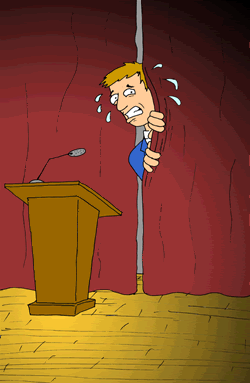A client of mine, Teresa Aziam of The Aziam Center, led a telecall last night that interested 350 people in just a few days of promotion. She went to her list and asked two JV partners to promote for her—but out of the gate, with not a whole lot of promoting at all, this was a strong number.
Here’s what they were drawn to: There is a single formula that explains your lagging business success—and it’s the same (and only) formula you will ever need to get all the clients, sales, buzz and love you want!
That was the hook–and the essence of her “Teaching Story”—the story she unfolded on the call.
They may have been drawn to the title, too, but we didn’t measure that: Off-the-Charts: The Only Formula You Need for Breaking the Ceiling on Business and Life Success.
They stayed because—as one woman near the end of the call said, when asked how one of the exercises affected her, “I can’t even express it, it was so profound.”
This is Teresa’s “Portal Program,” as I call it–#3 on the diagram. It is the pre-event to her star-money-maker, Signature Program.
This diagram illustrates the strategic line-up of offerings I help my clients create. But it doesn’t just magically happen. Here’s how Teresa and I got to her “Teaching Story” hook above.
She came to me, knowing that her specialty was “mindset work.” First order of business is always determining target market.
We went back and forth on that for a few sessions and finally she decided on “mom-preneurs” with kids under eight years of age. (I always have my clients, working with mothers, determine the age of their kids; it reveals yet another dimension of their problems/needs/desires that need to be addressed.)
The next order of business is determining that market’s “urgent problem.” I always say, “You must be urgently wanted (b/c you solve an urgent problem) or you will be an elective…and you can’t afford to be an elective.” So, we quickly determined that her market’s urgent problem (even though Teresa didn’t feel qualified at first to address it) was, “poor sales.”
“I don’t teach sales,” she said to me repeatedly, as she was trying to grasp that as her business future. She felt she wasn’t credible to solve that urgent need. (Can you relate? Then read on.)
“There are many solutions for someone, for example, who needs to lose weight,” I told her. “Someone can help nutritionally. Someone else can provide hypnosis treatment. Someone else, liposuction. Someone else, self-mastery techniques. The problem is the same, with many solutions. You can help that problem, as one of the solutions.”
That accomplished, we began to drill down into what she believed mom-preneurs needed to do to succeed. It wouldn’t be a sales technique, or strategy for attracting leads; it would be her answer, based on what she does well. After days of thrashing about in deep reflection (my questions tend to do that to people), she determined that above all, (that’s what I look for) her market needed to know their own self-worth to succeed. Without it, there can be no success.

And that began the very mysterious process that happens between me and a client in developing their Teaching Story. We sit on a see-saw, the two of us, and as she pushes off the ground in answer to a question of mine, it rolls down to me, and stimulates an idea, and back and forth we go, as my brain—always scanning for a Brain-Sticky concept—begins to think of what to teach to the market.
It’s completely non-linear and a process I cannot teach or I would make it a group program, but in no-time on that see-saw, keeping in mind a) her market; 2) what they most want; 3) what they need to know; 4) what she does best and 5) what they don’t know, I knew the hook: your sales are directly proportionate to your self perceived value. They will be low if your value of yourself (in any or all areas of life) is low; they will be high, if your self-perceived value is high. Teresa loved it because it was true. She said, “Yep. There is no exception. It can’t be any other way.”
I always test and test my clients’ convictions, and so I asked (as I’d asked it multiple ways before), “If they try any of the other solutions to boost their sales, will it work?” She was an emphatic, “No! This is THE answer!”
And so, I whipped the concept into a formula (which I don’t want to reveal here, for proprietary reasons, but you can go find out yourself!)
From there, I began to design the “arc” of the Teaching Story—how she would teach this to an audience. As you know, she gave it last night to a live audience, but even if she was never going to “be on stage” with it—having a Teaching Story Arc is a sweet, key way of developing an “idea” that no one else in the world has. No one else has the formula of her Teaching Story—and no one else has the teaching content we developed that teaches the formula, what do with it, and then presents a natural new problem to the audience.
Her Teaching Story was “urgently wanted” because it: addressed a nagging problem (low sales) with a irrefutably true concept (your sales are proportionate to your self-perceived value), spun in a unique way with a hook, (the formula), built with unique content (provocative exercises and data that taught the formula and the science behind it, in her case), delivered, using the unique curriculum design I’ve been teaching for years, which “teaches to the brain”—then resurrecting a new problem (how to effectively change self-perceived value forever to achieve off-the-charts sales and other business success), which is solved by the next event, the Signature Program.
And that is how 350 people came to register for the “only formula you need for breaking the ceiling on business and life success.” Congratulations, girl!! If you want to find out more about Teresa’s event, click here.
To do this work with me, email info (at) inspiredleadersacademy.com with “I want lots of people on my telecall, too!” in the subject line 🙂 or go read more at: www.inspiredleadersacademy.com/powerhousemethod2.





 #40 Public speaking is truly the best, most leverageable marketing strategy for service professionals. Trust issues, resistance and skepticism melt away when we see someone in person (for the most part). Nothing else does this like being in the room with your prospects. Get out and speak!
#40 Public speaking is truly the best, most leverageable marketing strategy for service professionals. Trust issues, resistance and skepticism melt away when we see someone in person (for the most part). Nothing else does this like being in the room with your prospects. Get out and speak! Unsubscribes. They tend to bring a little pang of
Unsubscribes. They tend to bring a little pang of



